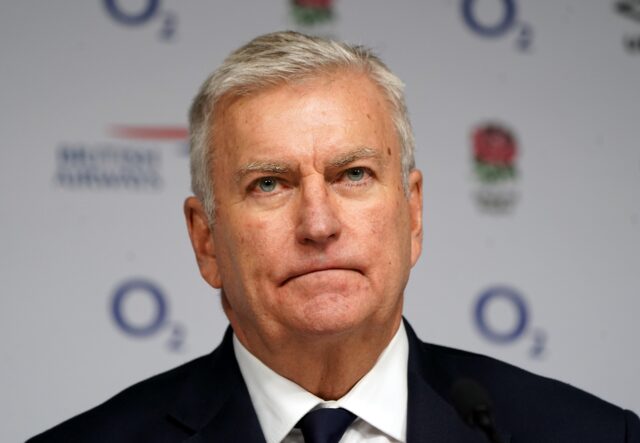Your support helps us to tell the story
From reproductive rights to climate change to Big Tech, The Independent is on the ground when the story is developing. Whether it’s investigating the financials of Elon Musk’s pro-Trump PAC or producing our latest documentary, ‘The A Word’, which shines a light on the American women fighting for reproductive rights, we know how important it is to parse out the facts from the messaging.
At such a critical moment in US history, we need reporters on the ground. Your donation allows us to keep sending journalists to speak to both sides of the story.
The Independent is trusted by Americans across the entire political spectrum. And unlike many other quality news outlets, we choose not to lock Americans out of our reporting and analysis with paywalls. We believe quality journalism should be available to everyone, paid for by those who can afford it.
Your support makes all the difference.
Out of the bunker at last strode Bill Sweeney, hard hat on and ears ringing. For two months, the embattled chief executive of the Rugby Football Union (RFU) had been a man under fire, the English game in revolt over an ill-judged accepting of a bonus agreed long ago – and much more besides.
Clad in jacket, shirt, jeans and trainers – the casual costume of the contemporary CEO – Sweeney held firm and forthright against the rat-a-tat-tat of the great many questions he had, until now, publicly dodged. Bulletproof Bill, some are calling him, among other rather less pleasant sobriquets – besieged, beleaguered, but brazen, it was time to defend the almost indefensible.
The breaking of a nearly two-month silence after a period of infighting and ire beyond any that even this bastion of insurrection has witnessed. The strength of feeling has been clear in every conversation at every level. It is not just the tone-deaf decision around the Long-Term Incentive Plan (LTIP) about which there has been fury. The swinging of the RFU’s axe has left a great many sticks with which to beat them: the underperformance of the men’s national team; the foisting of an unpopular tackle height law change on the community game amid falling player numbers; the cutting of funding to the Championship clubs.
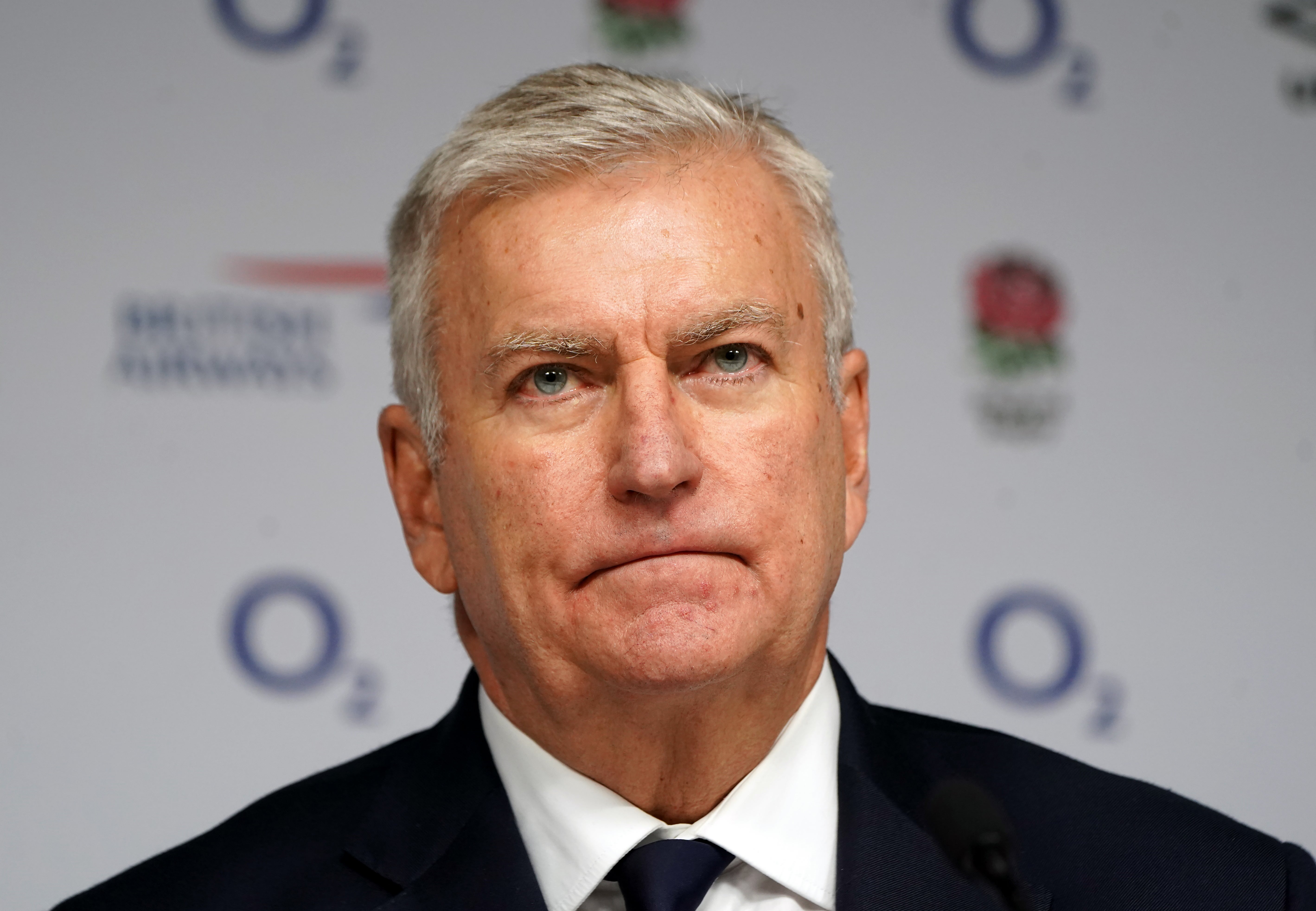
Such significant noise has triggered a rebellion that may yet bring Sweeney down. The special general meeting called for 27 March may well bring about a vote that urges the board to remove him from his position; while constitutionally this can be ignored, what power will he be able to wield if it becomes clear that a great portion of the game stands against him? While the sometimes ad hominem attacks against him have not all been correctly placed, there are so many issues with the conduct of the organisation over which he presides, with clarity of communication – or lack thereof – across many departments a key failing.
Yet, there is a wider discussion to be had here, one that Sweeney landed upon on Thursday afternoon as he sought to explain his position. The RFU, frankly, is a sprawling mess of a thing, trying to be too many things to too many people and generally failing to fully succeed at any of them. The chief executive, in this current structure, oversees just about everything that happens within English rugby union, from Steve Borthwick and John Mitchell’s senior sides down to the tots toddling to their first tries. He must also shape the international game – Sweeney has been a key driver of the new Nations Cup that will launch next year – and run an 82,000-seat events venue in southwest London, while not losing sight of the finances of a company will turn over more than £200m next year.
“I don’t think the current structure, given the game went professional in 1995, really works,” Sweeney admitted. “There were three reasons I didn’t take this job in 2017. The one that’s probably most relevant to today is the view of people who’ve been around a lot longer saying that the RFU regularly implodes, you can set your watch to it, there’s political shenanigans behind the scenes, and all the rest. It always happens in rugby.
“[But] I don’t think it’s an impossible job. I think it needs to be changed and structures need to be changed but I do think we’re making progress. Could it be quicker progress? Yes, and it’s harder to get things done in rugby than the corporate sector and that’s probably because of the network and the complex relationships around the different stakeholders and stuff. But I don’t think it’s an impossible job but the structures around it need to change to enable you to do it more efficiently.
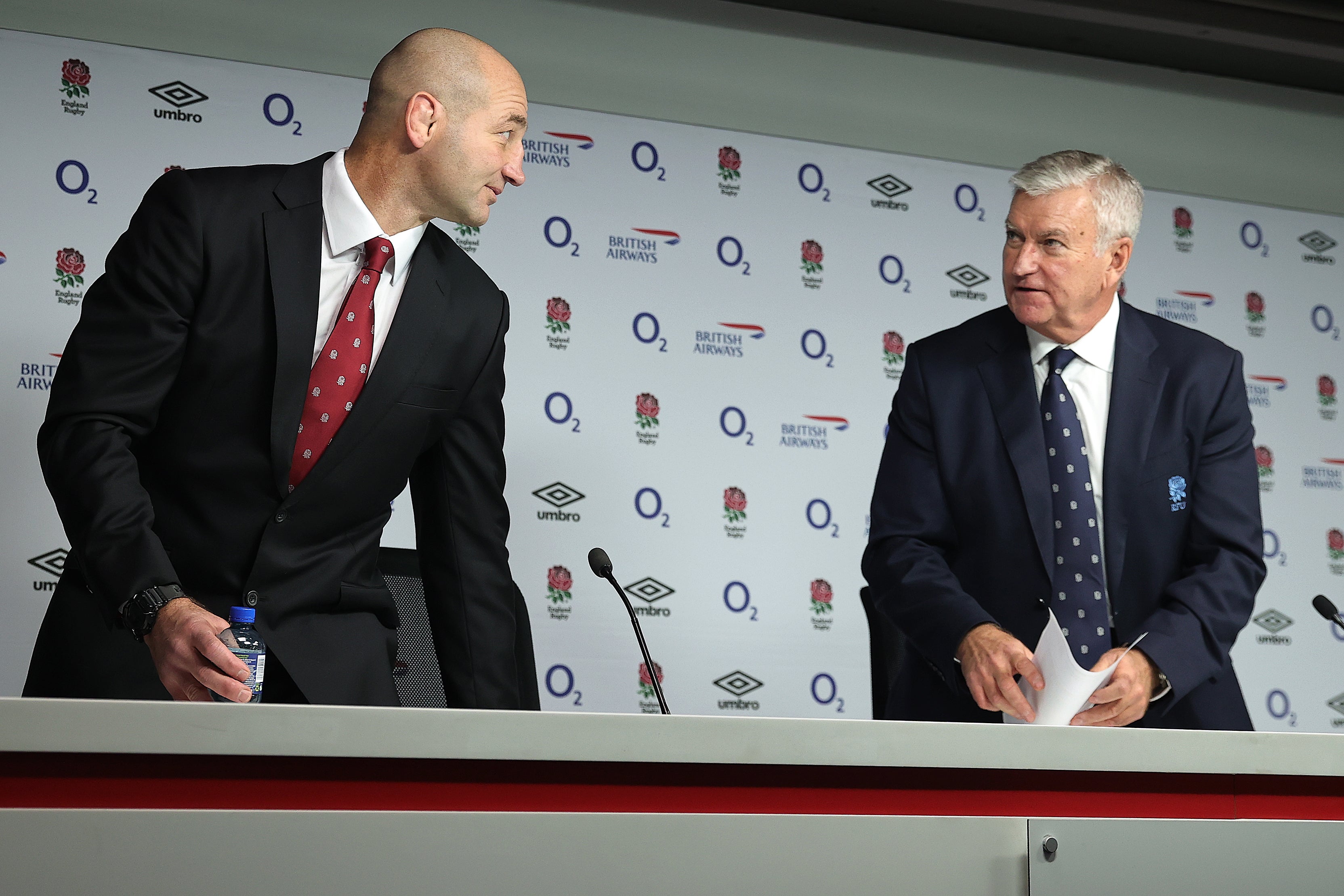
“If you had an index of positivity and negativity, I’d look at what’s going on with the Nations Cup and what they should and can do for us. Does that mean anything to Beaconsfield RFC when they’re playing London Irish amateurs and all they’re worried about is the number of people at the lunch? And it was Jane’s last lunch and she’s done it for 16 years. Are they worried about that? No, not at all.
“Do you get into conversations around the Professional Game Partnership in that clubhouse after the game? Not at all. All of those things have positivity in some shape. At the moment, there’s a lot of negativity around a lot of issues, or a lot of misinformation around a lot of issues.”
While steps have already been taken to devolve certain aspects of the running of the game, the RFU remains vast and vague. For example, Sweeney ruled out the installation in the near future of a director of rugby to sit above the England head coaches – while he takes soundings from an anonymous panel after each campaign, it is essentially his call when the RFU decides, as they did with Eddie Jones in 2022, to make a change of coach.
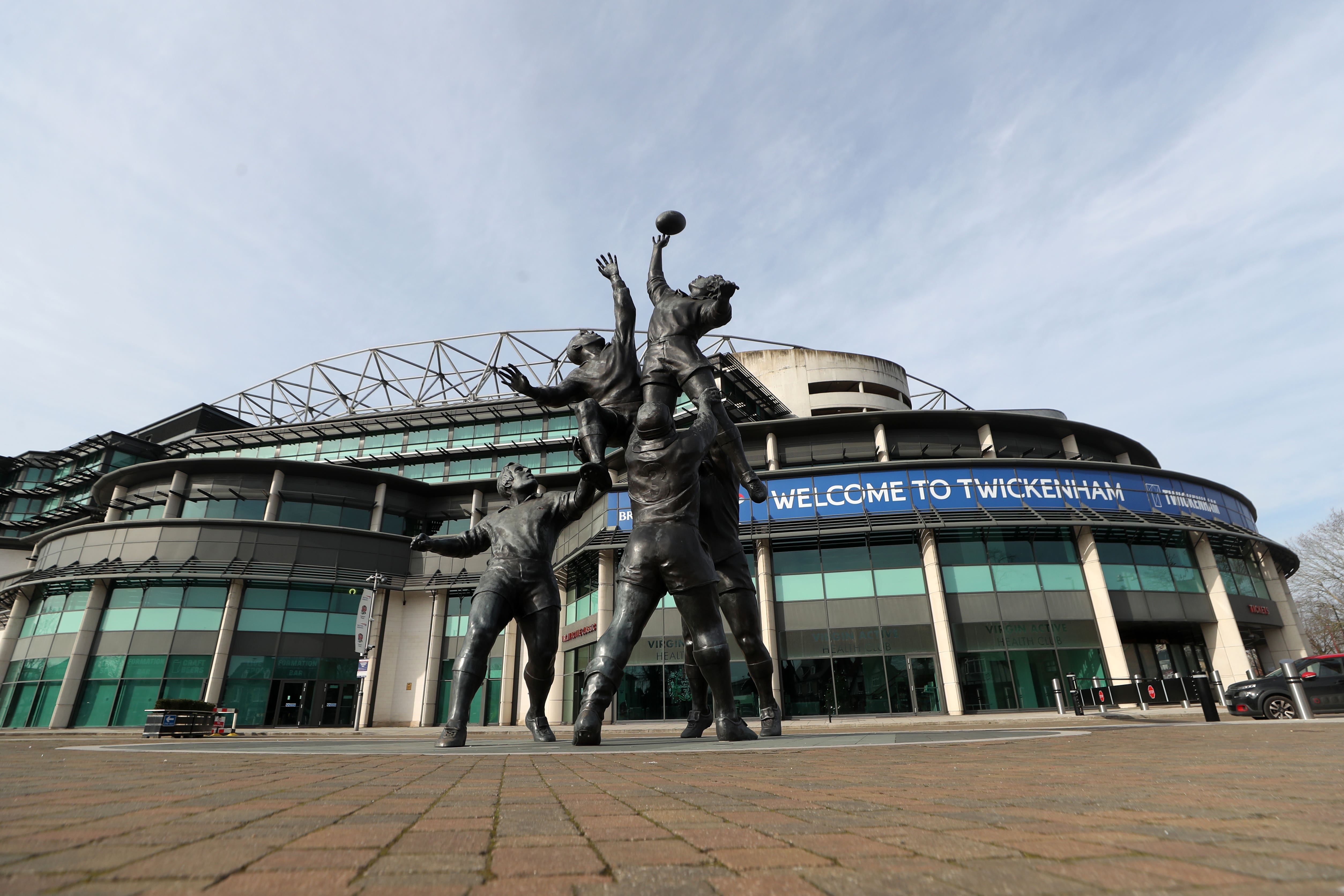
This feels a curious structure; Sweeney knows his rugby but has no background in the professional game. Equally, it feels patently ridiculous that a chief executive can be imperilled by the actions of an uprising led by a refereeing union and a group of disgruntled Championship sides. More than 150 member clubs have publicly declared that they want him to leave, and more will privately feel similarly, but the voting membership extends to about 1,200. A majority view is yet to be expressed; even if it is, Sweeney’s future will ultimately be determined by a small group of board members.
There is surely an argument for splitting the distinct areas of the organisation into separate bodies – but such splintering would still require overall oversight. “You could divide the RFU up into four or five different companies,” Sweeney explained. “You could have a separate organisation for the venue, for the community game, a separate organisation for commercial, for the performance side. At some point, they need to come together.
“The money that’s generated by the senior men’s team drives the vast majority of the money that we need to invest back into the game. At some point it needs to meet, because otherwise it just wouldn’t function. The community game wouldn’t generate the money to run the community game.”
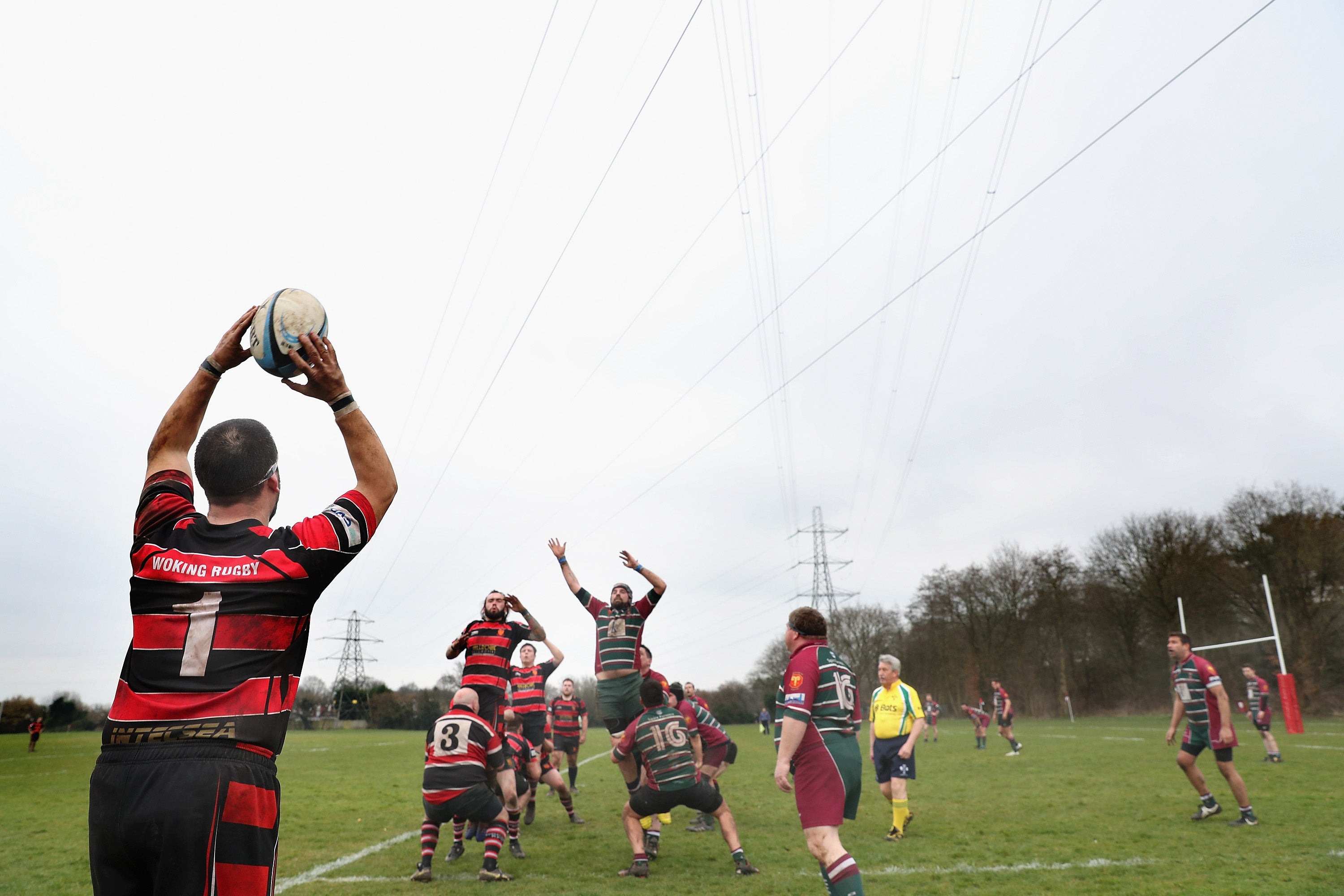
These are the challenges that men – and it remains largely men – like Sweeney are facing. As sport has become bigger and bigger business, the fissures in antiquated governance structures have been revealed. Ultimately, these figureheads are not answerable to shareholders but the great many stakeholders for whom sport serves a greater purpose; to talk so often in cold, corporate terms seems to neglect the role of rugby within wider society.
Perhaps it is quixotic to consider the hypothesis of whether sporting institutions should actually be run for profit, or bonuses accepted. An idealistic and perhaps entirely naive view would be to suggest that those in charge should be driven primarily by the good of the game and not, as too often seems to be the case, the bottom line. A great many of rugby’s problems can be attributed to greed and gluttony.
But perhaps Sweeney’s cardinal sin has been pride. In his somewhat self-glorifying defence, it was made clear just how much he enjoys his role and the rooms in which it puts him. There was a lack of contrition that jarred with the tenor and turmoil of the last two months. The amorphic and amoebic structures allow a certain lack of accountability – though Sweeney will happily take credit for the areas that are going well.
What, though, is the alternative? Certainly, Sweeney appeared to offer no definite solutions, while the rebellion is yet to explain exactly what, or who, they want to take the RFU forward. The guillotine may yet fall but what good does removing the head do if the body remains to rot beneath? An overdue governance review is already underway – whether Sweeney stays or goes, it is increasingly clear that reform is required.


